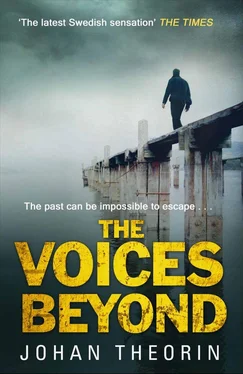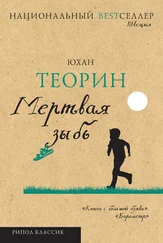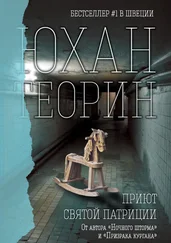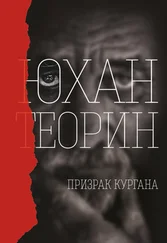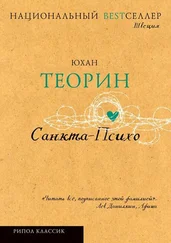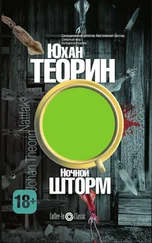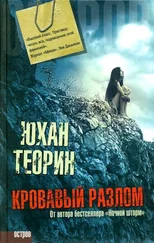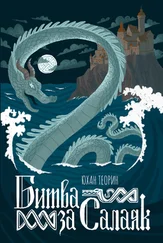The night before the child is due, Mila finally tells him what happened twelve years earlier. She tells him about the mass grave in the desert steppes that no one was allowed to talk about.
She even had to help with the digging. ‘Everyone had to dig,’ she says.
‘A mass grave?’ he asks. ‘Who’s buried there?’
‘The engineers.’
And Mila tells him about the rocket launch on the great plain to the east of the Aral Sea, in October 1960. The night when her lungs were destroyed.
‘I was at the hospital, several kilometres away, but we still felt the impact of the shockwave. At first, we thought it was the rocket lifting off, as planned, but that wasn’t the case... We had no idea how badly prepared everything was, how those in charge ignored safety regulations in order to stick to the timetable.’
Things had become more and more hectic before lift-off, with the generals hassling the engineers. It was late at night, everyone was tired. So in the end it went wrong, very badly wrong. A short circuit in the system meant that the second-stage engines fired too early, detonating the fuel tanks below the first-stage engines while the launch pad was still crowded with people.
‘The rocket started up without warning,’ Mila says. ‘It began spewing flames in all directions, then the fuel tanks exploded. A burning cloud billowed up into the night sky, and the whole launch pad was covered in fire... It annihilated those who were standing nearby and rolled like a burning wave towards those standing further away. They couldn’t escape.’
Mila had been spared the sight of the firestorm, when many of those trying to run away got caught on the barbed-wire fence surrounding the area and turned into living torches.
But she saw everything afterwards. Everything.
‘I went with one of the first fire engines to the scene of the accident to see what I could do for the injured on the spot and to arrange transportation to our hospital. We worked for several days among the smoking wreckage of the rocket and bodies charred beyond recognition. But we weren’t allowed to say a word about the accident afterwards. Not a word. All the dead were hidden in a mass grave.’
Mila falls silent, then starts coughing. She coughs for a long time.
Aron sits by her bed, attempting to comfort her, but she shakes her head. ‘It’s indescribable... You wouldn’t understand, you’ve spent your whole life sitting behind a desk... Have you ever seen a dead person, Vlad?’
At first, Aron doesn’t say anything, but then he begins to speak. ‘I haven’t spent all my time sitting behind a desk. And I have seen people die.’
‘Have you?’
Aron nods. He could spend several days telling Mila about the ‘black work’ he used to do, but instead he chooses to tell her about what happened one cold spring after Vlad had accompanied Major Karrek to Moscow. It was April 1940; Poland had fallen and it was the year before Hitler invaded the Soviet Union.
‘I was a soldier and I was given a special task,’ Aron says. ‘It began with a train journey away from the biting winds of the city, travelling inland with an NKVD commando of trusted men from the prisons in Moscow and Leningrad, handpicked by Major Karrek. He was my commanding officer, and had a great deal of power. He led a unit that reported directly to Stalin.
‘“We will be working in the darkness,” Karrek explained to us. “Black work.”
‘No one on the train told us where we were going, and we knew we weren’t allowed to ask questions.
‘The railway line was newly laid. It stopped somewhere between Leningrad and Moscow, in a huge, gloomy forest.
‘We got off the train and were transported further into the forest in trucks; eventually we arrived at a very basic barracks next to an extensive prison camp. I had seen high fences before, but behind this fence I could hear foreign languages which I think were German and Polish — even though we were definitely still in the Soviet Union.
‘On that first evening, Major Karrek changed his clothes. He put on leather gloves and dressed like a butcher, with a thick leather apron straining over his big belly to protect his green uniform, from his neck right down to his boots.
‘He gave us a short talk:
‘“We have been given an important task to carry out,” he said. “We are going to shoot dogs that have been captured. A great many dogs... to ensure that they do not escape and tear our children limb from limb.”
‘Our black work was carried out indoors at night, next door to the camp, in a freshly dug cellar that was soundproofed with sandbags and logs.
‘There were no desks. No one recorded proceedings.
‘Comrade Karrek had brought special guns for the job; they were made by a German manufacturer — Walther. My role was to be in charge of the weapons, to be constantly at the ready with reloaded magazines.
‘Comrade Karrek stepped forward in his butcher’s apron. “Let us begin.”
‘My colleagues led the prisoners down into the cellar and over to the brightly lit part of the room, one at a time. I saw that they were soldiers, officers of some kind, but none of them had caps, and some were not wearing jackets. Their hands were bound behind their backs. They were not permitted to speak, but I could see that they were foreigners.
‘Then I had to stop thinking and start counting.
‘As soon as a prisoner entered the room, his legs were kicked from beneath him and he was dragged over to the wall by the logs on his knees. By this time, Comrade Karrek was already moving towards him with his gun raised, and in a single movement he took aim at the back of the prisoner’s neck and fired.
‘Five seconds later, my colleagues lifted the body and took it out through another doorway to a large flatbed truck.
‘The floor was sluiced down and Karrek returned to the shadows. Everything was ready for the next prisoner.’
Aron falls silent, lost in the past.
‘We worked through the night in that cellar. It was like... like a conveyor belt. Or a millstone, grinding away.
‘Comrade Karrek allowed himself a small glass of vodka after every tenth execution. On some nights, my piece of paper was covered in tiny strokes, and Karrek had drunk more than twenty-five vodkas. All I had done was to load guns and count bodies, but after a ten-hour shift I was still completely exhausted.
‘And Karrek’s eyelids would be drooping as dawn broke, when the black work was almost over, but even the very last shots found their mark. Only when the last prisoner had been removed did he take off the stained apron and count the marks on my sheet of paper. The politicians who had planned all this insisted on a final tally each morning.
‘I remember the smell of the forest when we emerged from underground; it was cold and fresh. But the stench of the cellar lingered on our uniforms when we returned to the barracks to wash and to sleep as the sun rose.
‘The stench of gunpowder and blood.
‘Early one morning, towards the end of our black work, a very drunken Karrek talked to us about tjistka , the necessary purge.
‘“Every tjistka is difficult,” he muttered, raising his glass. “But they pass. Soon, all our enemies will be gone, and then we can go home.”
‘And we did.’
Aron has finished his confession to Mila, but of course he has not told her everything.
He hasn’t said anything about Sven.
Or about Comrade Trushkin.
His wife has listened, with one hand resting on her belly. She gazes at him for a long time afterwards, but not with disgust. Only sorrow.
‘It was war,’ she says. ‘You wanted to win that war. You did what you had to do.’
Aron looks away. ‘I was someone else back then,’ he says. ‘I wasn’t myself.’
Читать дальше
